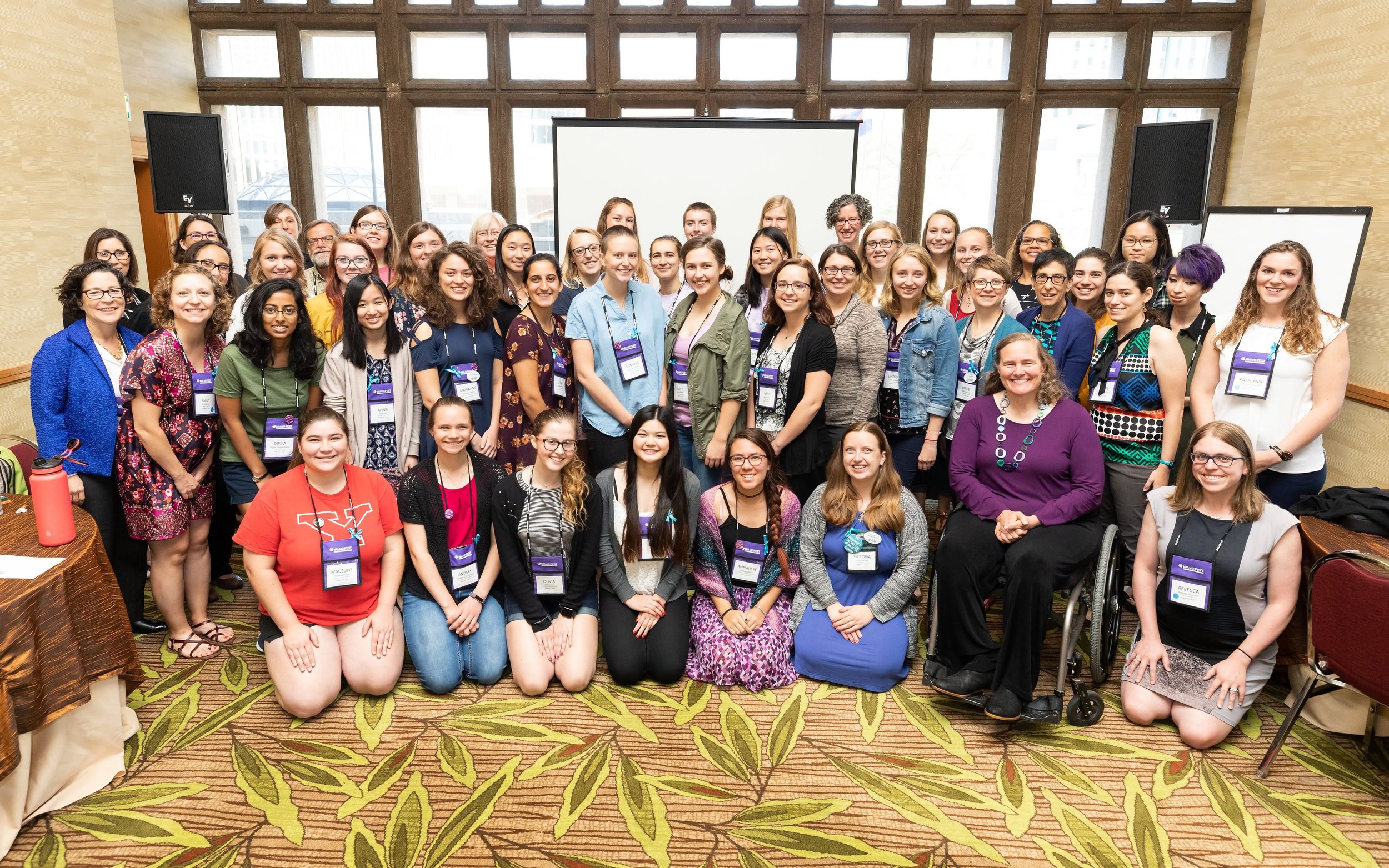MAA Meetings: Building Community in Turbulent Times
By: Michael Pearson, MAA Executive Director, Hortensia Soto, MAA Associate Secretary, Anne Agniel, MAA Director of Meetings & Events
MAA MathFest will be held in Cincinnati in just a few weeks, and we’re looking forward to seeing colleagues and friends, and together enjoying the wonderful program that has been developed. For us, this has become the premier annual meeting of the MAA community, and we are pleased with the growth of MAA MathFest over the last decade. And the MAA is committed to ensuring that all members of our community are able to participate fully in our meetings.
However in recent years, we have grown in our awareness of the barriers to full participation in our community faced by women and other underrepresented groups. As such, we have also been careful to include language in our contracts for meetings that ensures that all of the venues we use commit to supporting the MAA Welcoming Environment Policy. Even so, the shifting political landscape creates new concerns among our members regarding selection of meeting sites.
The selection of sites for MAA annual meetings is a multi-year process; initial agreements with Cincinnati were completed in 2012. In general, the five- to seven-year lead time in selection of sites for MAA MathFest does not allow us to anticipate changes in the legal landscape. The MAA Meetings Management Committee is closely involved in all final venue and hotel selections, with the MAA Associate Secretary working hand in hand with the Meetings and Events team members to finalize the best possible choices for future years.
Identification of potential meeting locations begins with customized requests for proposals sent to several cities for each MAA MathFest. Our wish list is extensive and grows annually based on MAA member survey results. Member experience and feedback are key to our successful placement, planning, and execution of every national meeting.
Along with member costs of participation and concessions offered to MAA in order to continue to facilitate low registration costs, MAA requires venues to accept certain contract clauses including the MAA Welcoming Environment Policy. Other comparison points include but are not limited to sleeping room and meeting room inventories, specific space capacities for all event types, exhibit hall appeal to exhibitors and registrants alike, and venue and city accessibility for all attendees, in compliance with ADA regulations, which is a federal law.
We also seek out urban settings with modern meeting facilities, affordable guest room options, and retail and dining outlets situated within easy walking distance. Convenient and affordable local transportation options and a city that is accessible from major travel hubs within the continental United States, are also important considerations.
We also want our meetings to be conducive to full participation by all attendees regardless of gender, ethnicity, sexual orientation, or any other legally protected class. This has raised concerns in the past, and as sites for MAA MathFest are chosen 5-7 years in advance, MAA is facing new issues based on current trends in state laws.
During the civil rights era, both the MAA and AMS made positive steps towards integrating national and regional meetings. For example, for many years, when it was Mississippi’s turn to host the annual Louisiana-Mississippi Section meeting, the meeting was held on the Mississippi Gulf Coast, because this was the only place in the state open to holding integrated meetings.
More recently, in 2008, when California voters approved Proposition 8, prohibiting same sex marriage, there was an effort in the MAA Board of Governors to exclude Utah as a potential meeting site, because of the sense that citizens from Utah had funded the campaign supporting Proposition 8. On the other hand, there was no effort to restrict MAA from selecting sites in California! The Board of Governors ultimately chose not to exclude Utah as a potential meeting site, and Proposition 8 was later found unconstitutional.
In 2016, California passed Assembly Bill No. 1887, which asserts "California must take action to avoid supporting or financing discrimination against lesbian, gay, bisexual, and transgender people," and thus, prohibits the use of state funds to support employees traveling to states that are deemed to have laws that conflict with the principle. There are currently 10 states on the list, and this has raised concerns about the ability of our colleagues from California to attend meetings in the prohibited states. (We note that, at least for now, Ohio is not on the list, but Kentucky, where the Cincinnati airport is, is!)
The California law presents an unusual situation for us. Certainly, we want our meetings to be as inclusive as possible. As noted above, we insist that our contracts include language to support the MAA Welcoming Environment Policy. However, we have not limited the prospective list of meeting sites for MAA MathFest based on state laws, which are always in flux, especially in these turbulent times.
One might argue that the California law is unnecessarily creating hardships for their citizens that are counterproductive across multiple fronts. As an example, does traveling to Austin, TX, a liberal enclave in a decidedly conservative state, do more to support the conservative agenda of the State of Texas, or does it favor Austin’s liberal agenda?
Thus, MAA’s position is that, as long as the MAA continues to hold meetings, political calculations should be left on the sidelines as far as selecting meeting sites is concerned. We will continue to make decisions for annual meetings like MAA MathFest based on overall cost considerations, quality of meeting facilities, amenities of the host city, city and venue accessibility, and most importantly,the commitments of our hosts to abide by the MAA Welcoming Environment Policy. We are committed to structuring MAA meetings to align with MAA’s vision of a society that values the power and beauty of mathematics and fully realizes its potential to promote human flourishing.


